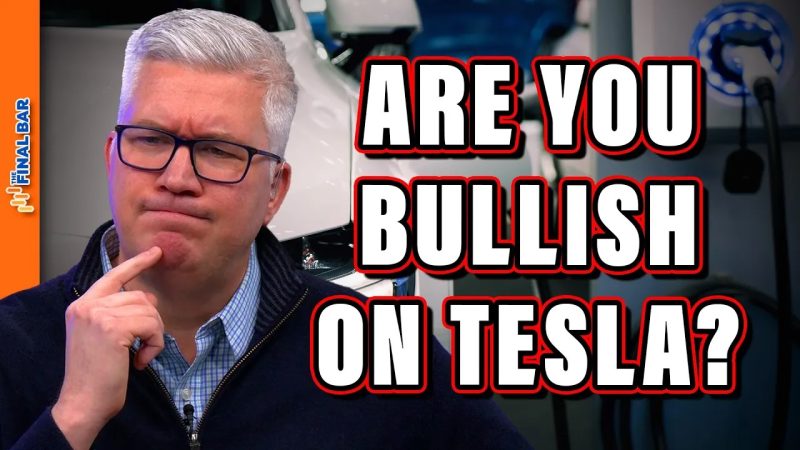In the fiercely competitive world of electric vehicles and innovative automotive technology, Tesla Inc. has emerged as a formidable force. The company, led by visionary entrepreneur Elon Musk, has captivated the market with its groundbreaking electric cars and cutting-edge energy products. Despite its incredible success and popularity among consumers, there are compelling arguments to suggest that it may be premature to wholeheartedly embrace a bullish outlook on Tesla.
One of the primary reasons it may be too early to be overly optimistic about Tesla’s future prospects is the intense competition it faces from established automakers as well as emerging players in the electric vehicle space. Companies like Ford, General Motors, and Volkswagen are aggressively investing in electric vehicle technology and production capabilities to challenge Tesla’s dominance. With a history of manufacturing expertise and vast resources at their disposal, these traditional automakers pose a significant threat to Tesla’s market share.
Moreover, the regulatory environment surrounding the automotive industry is undergoing significant changes that could impact Tesla’s business operations. Governments around the world are implementing stricter emissions standards and incentivizing the adoption of electric vehicles to combat climate change. While Tesla has benefited from these initiatives in the past, increasing competition and changing regulations could complicate its growth trajectory in the future.
Another factor that may temper enthusiasm for Tesla is the company’s track record of production challenges and quality control issues. Tesla has faced numerous setbacks in ramping up production of its vehicles, leading to delays and customer dissatisfaction. Quality control problems have also plagued the company, with reports of manufacturing defects and reliability issues affecting some of its models. Addressing these operational shortcomings will be critical for Tesla to maintain its reputation and sustain long-term success.
Furthermore, the valuation of Tesla’s stock may be another cause for caution among investors and analysts. Despite its rapid growth and financial performance, Tesla’s stock price has exhibited significant volatility and is subject to market sentiment and speculation. The company’s valuation is often viewed as inflated compared to traditional automakers, raising concerns about a potential market correction that could impact Tesla’s shareholders and stakeholders.
In conclusion, while Tesla has made remarkable strides in advancing electric vehicle technology and disrupting the automotive industry, there are legitimate reasons to exercise caution when assessing its future prospects. Competition from established automakers, evolving regulatory landscape, production challenges, and stock valuation concerns all contribute to a complex and nuanced outlook for Tesla. By critically evaluating these factors and monitoring developments in the electric vehicle market, stakeholders can make informed decisions about their confidence in Tesla’s long-term success.

